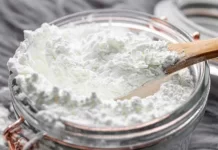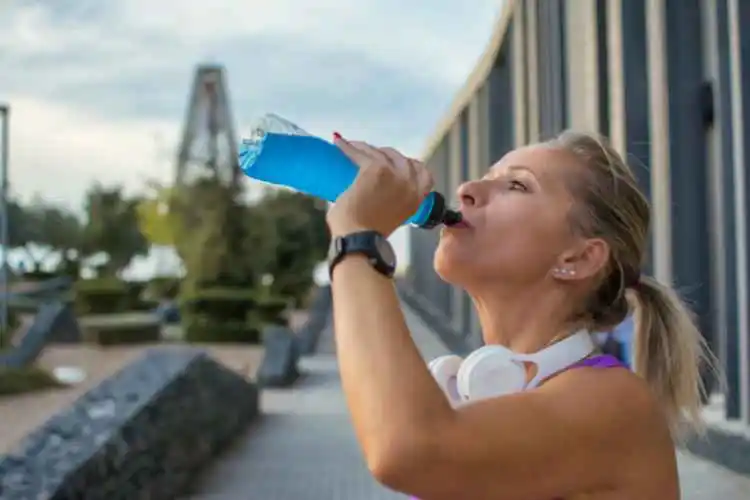Protecting oneself from illnesses is of utmost importance in maintaining good health and overall well-being. In today’s world, we are surrounded by many diseases and conditions, some of which we may be familiar with, while others may come as a surprise. Unfortunately, many of these illnesses can be contracted without knowledge and may have serious consequences.
Why Should You Be Proactive About Your Health?
We can be afflicted by illness at any time and in several ways. To reduce the risk of contracting illnesses, it is important to be proactive about our health. After all, the onslaught of C-19 taught us how deadly a virus could be. But it’s not just viruses that we need to be careful about; many other environmental factors can lead to fatal illnesses.
For instance, did you know that exposure to asbestos, a naturally occurring mineral commonly used until the early 1980s in construction and other industries, is the primary risk factor for mesothelioma? People who worked in these industries or lived close to asbestos-contaminated environments were often unaware of the dangers posed by this mineral. As a result, they unknowingly exposed themselves to mesothelioma risk. And, the worst part? The mesothelioma survival rate is often low, making it a particularly dangerous illness.
Similarly, many other illnesses can be contracted without our knowledge. For example, food poisoning can result from eating contaminated food. While this is generally a less severe illness, it can still have serious consequences, especially for those with weakened immune systems. Therefore, it is paramount to be proactive about protecting yourselves from illness and maintaining good health.
Things You Can Do To Protect Yourself
Here are five things you can do to protect yourself from illness and promote a healthy and fulfilling life.
1. Get vaccinated
Vaccination is a simple and effective way to protect yourself and your loved ones from illness. They have a long and successful history of saving lives and improving public health. For example, vaccines have virtually eradicated smallpox and significantly reduced the incidence of polio, measles, and other serious diseases. And in recent years, vaccines have become even more important with the emergence of new diseases, such as COVID-19.
Not only does getting vaccinated protect you from getting sick, but it also protects those around you who may not be able to receive certain vaccines due to age, medical conditions, or other reasons. This is known as herd immunity and helps protect vulnerable populations who cannot receive vaccines.
Getting vaccinated is a critical step in maintaining good health and reducing the spread of disease. So make an appointment to get vaccinated today by talking to your doctor about the vaccines recommended for you!
2. Practice good hygiene
Good hygiene involves keeping your body and the things you come into contact with clean and free from germs.It includes regularly washing your hands, covering your mouth and nose when coughing or sneezing, and avoiding close contact with individuals who are visibly ill.
Good hygiene habits help to reduce the spread of germs and bacteria that can cause illness. By washing your hands, especially after using the bathroom, blowing your nose, and before eating, you are removing any harmful substances that may have accumulated on your skin.
In addition, it is essential to avoid close contact with individuals who are visibly ill, as this increases your risk of exposure to germs. If you do come into contact with someone who is sick, make sure to wash your hands immediately afterward to reduce your risk of infection. y taking steps to maintain good hygiene, you can reduce your risk of getting sick and help to prevent the spread of illness to others.
3. Clean and disinfect frequently
Cleanliness and disinfection are crucial for preventing the spread of germs and keeping you and your surroundings healthy. Cleaning involves removing dirt, grime, and other debris from surfaces, while disinfection involves killing any germs that may be present.
Frequently touched objects and surfaces, such as doorknobs, light switches, and countertops, can easily become contaminated with germs. You can then transfer these germs to your hands, mouth, nose, and eyes.
Regularly cleaning and disinfecting these frequently touched objects and surfaces can reduce the number of germs present, reducing your risk of getting sick. It is especially important in high-traffic areas, such as public restrooms, kitchens, and classrooms, where germs can easily spread from one person to another.
4. Stay home when sick
Staying home when you are sick is one of the most important things you can do to protect yourself and those around you from illness. When you feel under the weather, it is easy to spread germs to others through coughing, sneezing, and even touching objects and surfaces.
By staying home when you are sick, you can help to prevent the spread of illness to others and reduce the risk of infecting others. In addition to preventing the spread of illness, staying home when you are sick can help you recover more quickly. This is because you can rest, stay hydrated, and avoid exposing yourself to further germs. While it can be tempting to go to work or school when you feel under the weather, it is important to prioritize your health and those around you. If you are feeling sick, take the time to stay home, rest, and take care of yourself.
5. Seek medical attention when necessary
Seeking medical attention is crucial in protecting yourself from illness and ensuring that you receive proper care and treatment. You can receive a proper diagnosis, treatment plan, and necessary medications or vaccines by seeking medical attention. It can help to prevent the illness from getting worse and can also help you to recover more quickly.
In some cases, early treatment and intervention can also help to prevent more severe health problems down the line. For example, getting prompt treatment for a bacterial infection can help to prevent the development of more severe health conditions, such as sepsis. In addition to seeking medical attention when you feel ill, regular doctor visits are also essential for preventive care. It includes routine physical exams, screenings, and other tests that can help to detect health problems early and prevent the development of more serious ones.
Bottom Line
By implementing simple steps and making specific lifestyle changes, you can effectively protect yourself from various diseases and maintain good health. Whether facing a new threat like COVID-19 or a more established one like the flu, follow the above-discussed tips to ensure you’re in the best possible position to stay healthy and thrive.

































